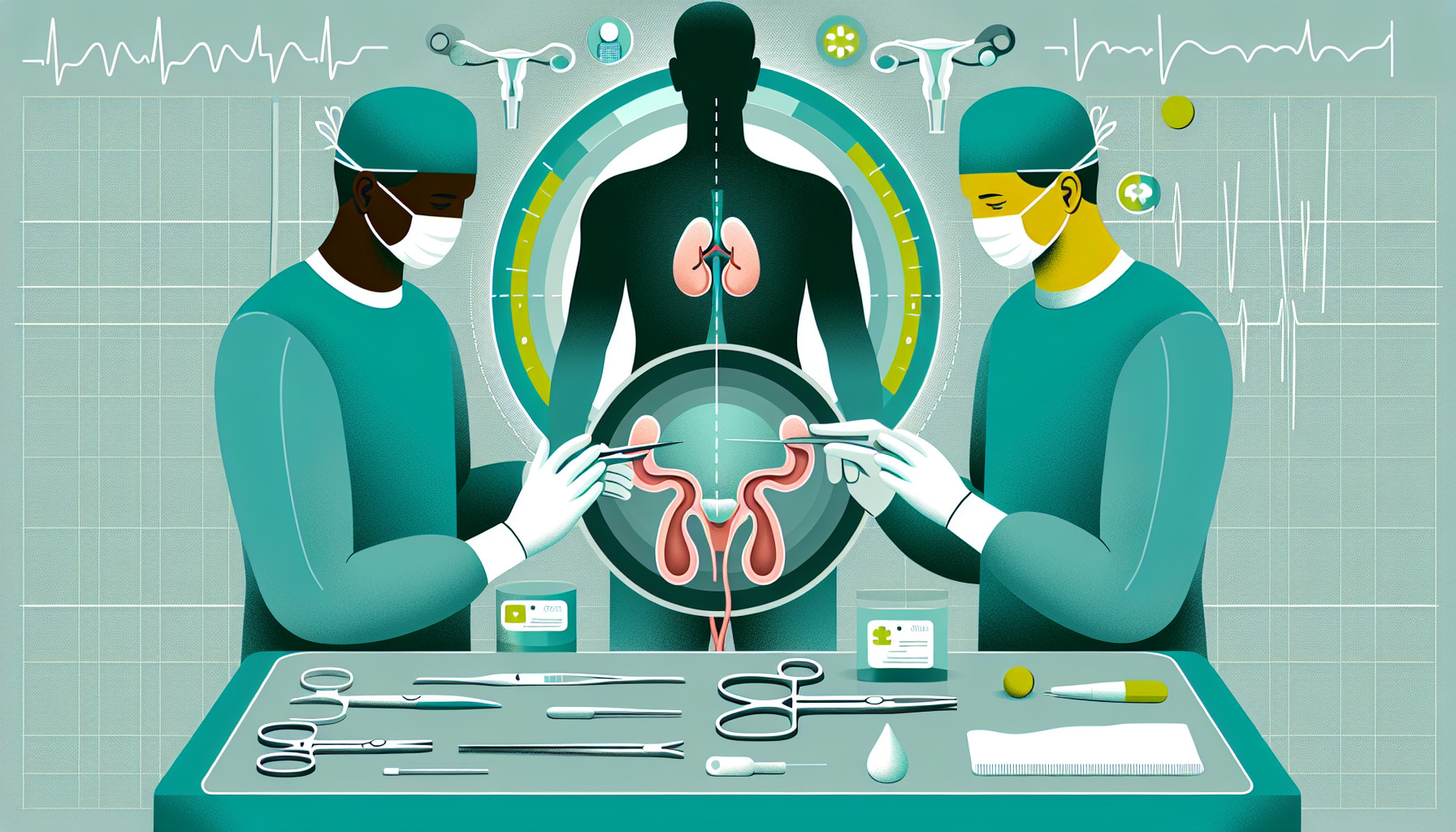Our Summary
This research paper is about a surgical procedure called radical cystectomy, which is often used to treat severe bladder cancer. Traditionally, this surgery is done manually by a surgeon, but advancements in technology have allowed for the development of robot-assisted radical cystectomy (RARC).
The researchers looked at all the studies published about RARC up to 2014 and selected 38 of them for further analysis, excluding ones that were not directly relevant to their research.
They found that the most common complications associated with RARC are problems with the gastrointestinal system, infections, and issues with the genitourinary system (which includes the reproductive and urinary organs). However, they also found that RARC had fewer overall complications compared to the traditional surgery, as well as less severe complications, less bleeding during surgery, and faster recovery times after surgery.
In conclusion, although more research is needed, RARC seems to be a promising technique that could potentially reduce complications, the need for blood transfusions during surgery, and recovery times.
FAQs
- What is radical cystectomy and what is it used for?
- What are the most common complications associated with robot-assisted radical cystectomy (RARC)?
- Based on the studies, how does RARC compare to traditional surgery in terms of complications and recovery times?
Doctor’s Tip
One helpful tip a doctor might give a patient about cystectomy is to follow all pre-operative instructions carefully to ensure the best possible outcome. This may include stopping certain medications, fasting before surgery, and completing any necessary pre-operative tests or evaluations. Additionally, it is important to follow all post-operative instructions provided by your healthcare team to promote healing and reduce the risk of complications. This may include taking prescribed medications, attending follow-up appointments, and avoiding certain activities during the recovery period. By following these instructions closely, you can help ensure a successful cystectomy surgery and a smooth recovery process.
Suitable For
Patients who are typically recommended for cystectomy include those with advanced bladder cancer that has not responded well to other treatments, including chemotherapy or radiation therapy. Other patients may include those with a high risk of recurrence of bladder cancer, those with muscle-invasive bladder cancer, or those with non-muscle invasive bladder cancer that has progressed to a more advanced stage.
Additionally, patients with certain medical conditions that make them unable to undergo other treatments or those with a history of recurrent urinary tract infections may also be recommended for cystectomy. It is important for patients to discuss their individual case with their healthcare provider to determine if cystectomy is the best treatment option for them.
Timeline
Before cystectomy:
- Patient is diagnosed with bladder cancer and undergoes various tests and examinations to determine the stage and severity of the cancer.
- Patient discusses treatment options with their healthcare team, including the possibility of undergoing a cystectomy.
- Patient undergoes preoperative preparations, which may include blood tests, imaging scans, and meeting with a surgeon to discuss the procedure.
- Patient may undergo chemotherapy or radiation therapy before the surgery to shrink the tumor and reduce the risk of cancer spreading.
After cystectomy:
- Patient undergoes the cystectomy procedure, either manually or robot-assisted, to remove the bladder and any affected surrounding tissues.
- Patient stays in the hospital for a period of time to recover from the surgery and monitor for complications.
- Patient may experience side effects such as pain, fatigue, and changes in bowel and urinary function.
- Patient may need to undergo additional treatments such as chemotherapy or immunotherapy after surgery to reduce the risk of cancer recurrence.
- Patient undergoes regular follow-up appointments and monitoring to check for any signs of cancer recurrence and to manage any long-term side effects of the surgery.
What to Ask Your Doctor
Some questions a patient should ask their doctor about cystectomy, specifically robot-assisted radical cystectomy (RARC), include:
- What are the potential risks and complications associated with RARC compared to traditional surgery?
- How experienced are you in performing RARC procedures?
- What is the success rate of RARC in treating bladder cancer?
- How long is the recovery period after RARC compared to traditional surgery?
- Will I need additional treatments, such as chemotherapy or radiation therapy, after RARC?
- How will my quality of life be impacted after RARC?
- What are the long-term effects of RARC on bladder function and urinary continence?
- Are there any alternative treatments to RARC that I should consider?
- How often will I need follow-up appointments and monitoring after RARC?
- Can you provide me with information about support groups or resources for patients undergoing RARC?
Reference
Authors: Guiote I, Gaya JM, Gausa L, Rodríguez O, Palou J. Journal: Actas Urol Esp. 2016 Mar;40(2):108-14. doi: 10.1016/j.acuro.2015.03.002. Epub 2015 Apr 24. PMID: 25914065
